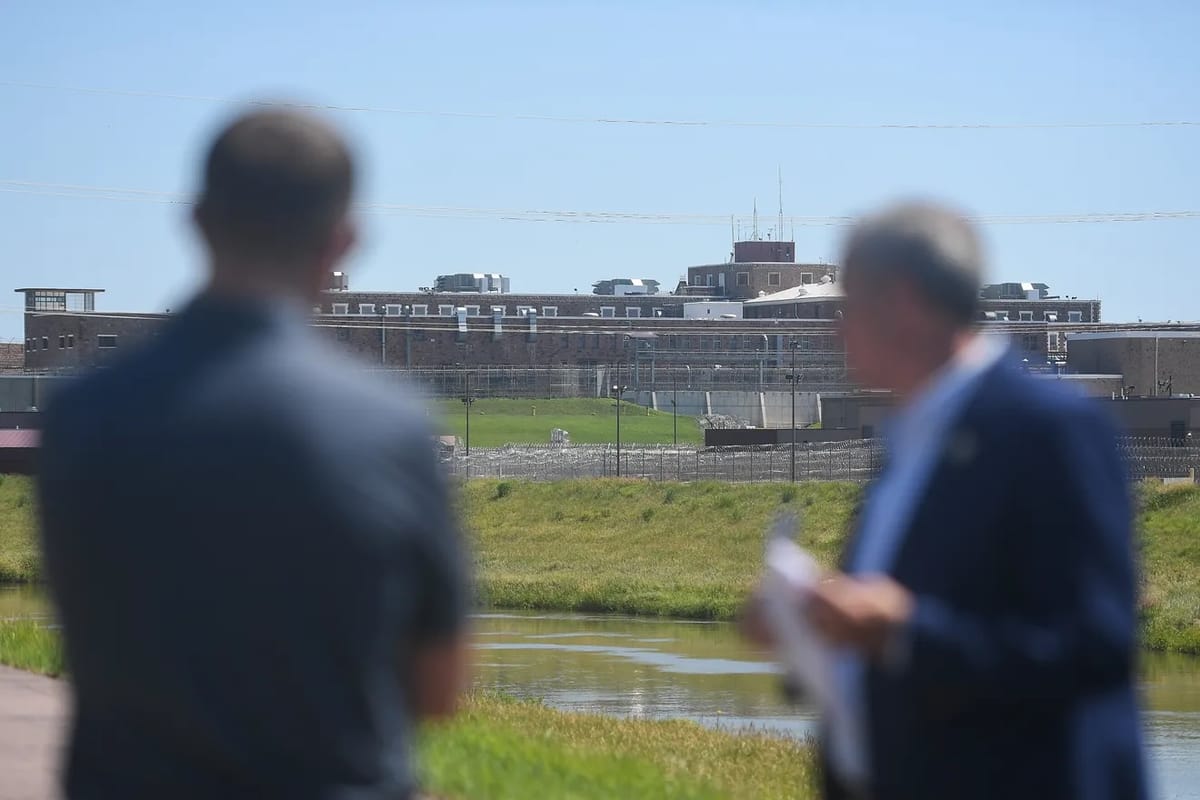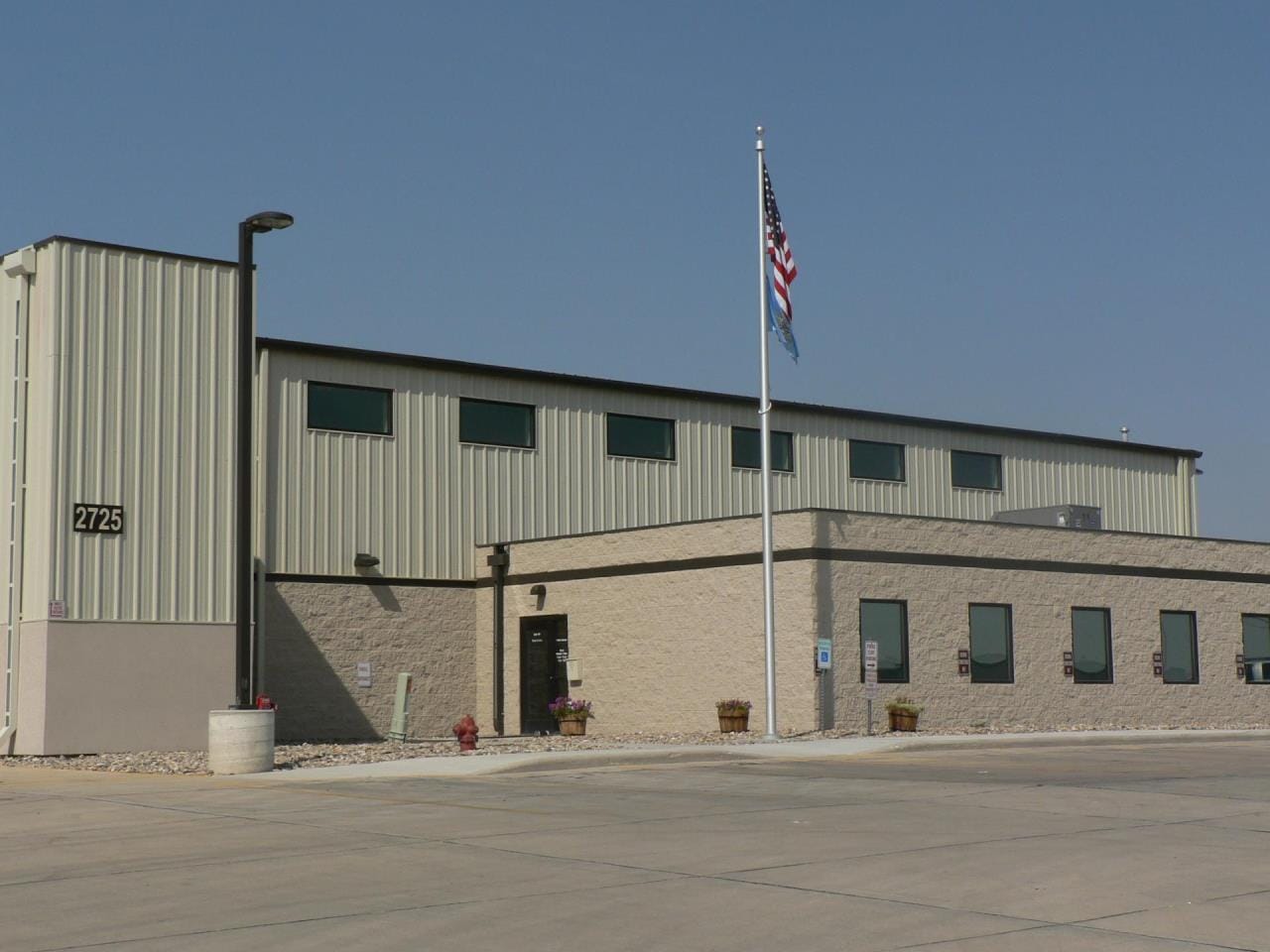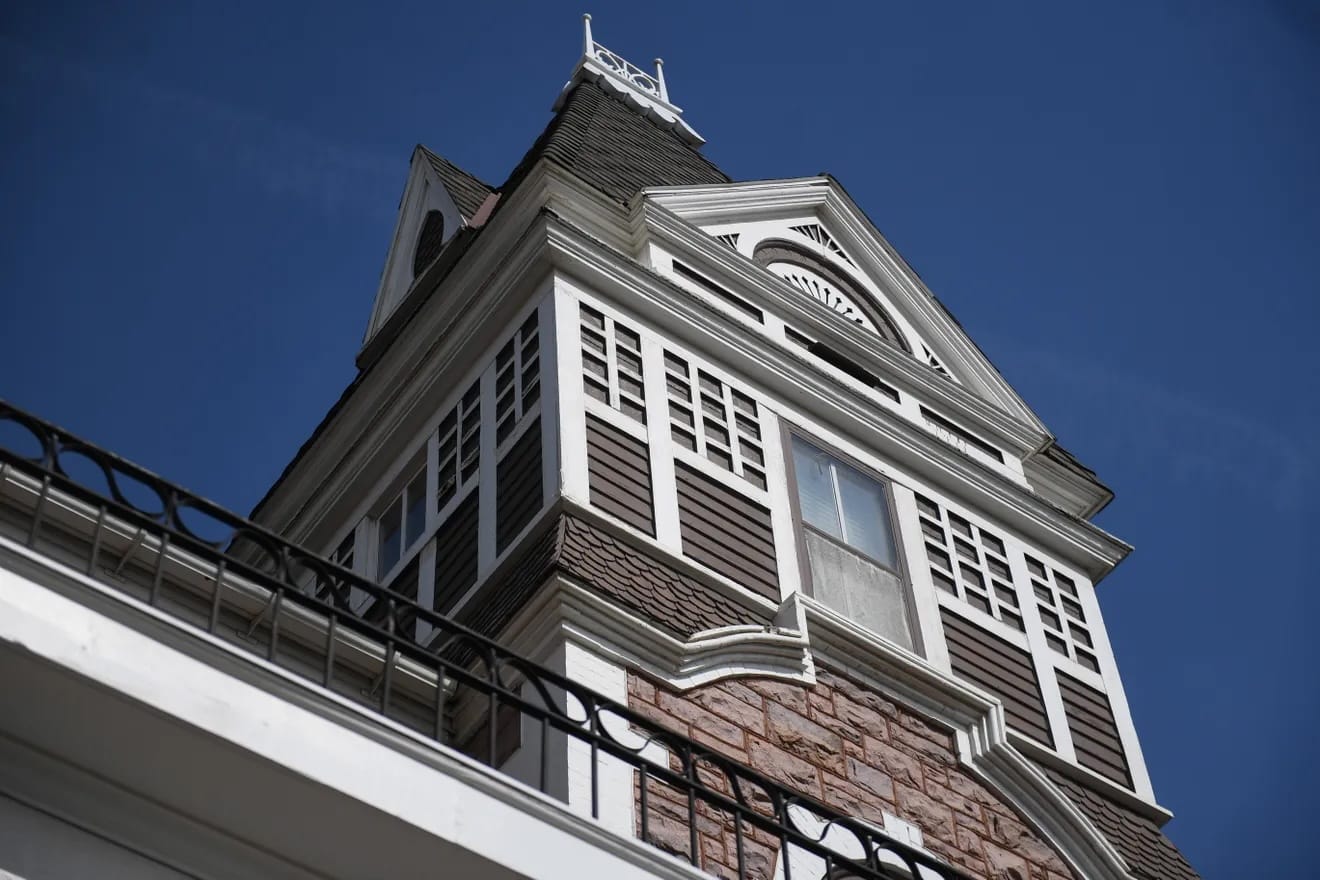PIERRE, S.D. — The state of South Dakota must do a better job of keeping prisoners from reoffending and ending up back behind bars, South Dakota lawmakers said this week in narrowly passing a bill authorizing a $650 million facility in Sioux Falls.
Among the concerns that opponents have about the large expenditure is whether the state has done enough to reduce recidivism, including addiction treatment. Before the state pursues such an investment it needs to improve the delivery of these services, they argued.
Proponents of the new prison don’t dispute that, but they said the project will help by expanding the space available for these rehabilitation services.

After the bill passed, Gov. Larry Rhoden made good on a promise to sign an executive order authorizing a task force to evaluate programming and treatment needs at the new facility, engage with Native Americans on their needs, study re-entry models and best practices and make recommendations.
It will be some time before those recommendations come to fruition. The construction of the new prison will take four years, so advocates for correctional reform are taking a look at what can be done now to improve the system.
The whole family
Ernestine Chasing Hawk, a resident of Rapid City and managing editor of the Native Sun Times newspaper, has two daughters, ages 34 and 36, who were in prison for drug offenses. She asked that their names not be used.
Both were caught up in South Dakota's ingestion law. Prior to July, the ingestion law dropped felony charges on people who test positive for drugs following an arrest. Last year, the law was reformed to make it a misdemeanor for the first and second offense.
Chasing Hawk’s younger daughter has been in and out of prison for the past nine years, and the older one was first charged four years ago. They are both now in treatment, but there are a number of barriers to accessing those services, especially in the western part of the state, Chasing Hawk told News Watch. These barriers increase the risk they'll relapse, and they create burdens for others.
“It doesn't just impact the person who's incarcerated, but it impacts the whole family,” she said.
One of her daughters has two children, and a third daughter took care of them while their mother was in prison. A felony ingestion charge can limit access to public housing, and many landlords also won't lease to people with recent drug convictions. This reduces their housing options, and sometimes parolees have to rely on family for housing.
While case managers in the parole division of the Department of Corrections help parolees find jobs, many employment opportunities are closed to felons. Some offenses, such as drunken driving, can result in the loss of a driver's license.
And the Department of Public Safety can take a person’s driver's license if they are too far in arrears for child support. Then, they have to rely on family and friends for transportation.
"It's difficult to get housing, difficult to get jobs. And you're on parole, you have to have a job. And so then, if they don't, they eventually end up back in prison,” Chasing Hawk said.

She has had to drive her daughters to take drug tests, to treatment facilities and to meet with their parole officers. One time, a boyfriend drove Chasing Hawk’s younger daughter across the state in a blizzard to take her daughter to a detox program in Yankton.
Native Americans made up 63% of female offenders in the South Dakota prison system in 2024, and 53% of female inmates were incarcerated for drug offenses.
Another one of Chasing Hawk’s daughters wasn’t able to successfully complete treatment and died from her addictions.
“That story is just too sad, and I don’t want to talk about it,” she said.
Costs to taxpayers
Sen. Tamara Grove, a Republican who lives on Lower Brule Indian Reservation, sponsored the law that made ingestion a misdemeanor. The law went into effect in July, so it’s too soon to tell how it will impact South Dakota’s incarceration and treatment rates.
Grove told News Watch she sponsored the bill because the felony ingestion charges were taking people who were committing minor crimes as a result of their addictions and railroading them into incarceration.
When drug tested upon arrest for minor offenses, the addicts would end up with felonies, which have greater impacts on their lives that create barriers to overcoming addiction. Treating addicts is much more affordable than incarceration, Grove said.
“You’re not getting anything back for it (incarceration). In fact, when they come out, they’re worse,” she said.
Play a bigger role in our storytelling.
Join us as a partner in telling stories that are important to all South Dakotans with a tax-deductible donation.
In fiscal year 2024, the average daily cost per adult inmate in the South Dakota prison system was $92.21, up from $67.64 in fiscal year 2020, according to the Department of Corrections. The average daily cost of managing parolees was $12.02 in fiscal year 2024, up from $7.06 in fiscal year 2020.
Grove said that it’s good that there are consequences for crimes, and these arrests can lead people into drug courts where they get treatment for their addictions.
“We do want to be tough on crime. We do want that, but we also want people to be productive citizens,” Grove said.
She said that programs such as the state’s drug courts that have stringent rules and set boundaries for the offenders are showing success in getting people past their addictions. She’d like to see the state relying more on these kinds of programs than incarceration.
“I think that we can lead in areas when it comes to this, on how you can hold people accountable but also do so in a way that is productive for all of us,” Grove said.
From prison to parole and back
South Dakota’s parolees have to agree to conditions that are outlined prior to their release. These are based on a parolee’s criminal history, the risk they pose to the community, their individual needs for rehabilitation and other factors.
In fiscal year 2024, 851 male and female parolees completed their parole or were granted early discharge, but 1,324 were sent back to prison. The most common reason for technical parole violations was a failure to keep their parole agents informed of their activities and location. These accounted for 69% of all violations.
Failing to engage with and maintain treatment program participation accounted for 42% of violations. Drug use or positive drug tests accounted for 42% of violations. Other violations include a failure to obey all laws and failure to comply with directions and sanctions. Since parole hearings can include multiple violations, the numbers exceed 100%.
Not all violations send the parolees back to prison. Depending on the seriousness and extent of their non-compliance, the parolees may receive a verbal reprimand, be required to write an apology letter, take anger-management classes, do community service, take more frequent drug tests or be on house arrest.
Approximately 37% of admissions into prison in fiscal year 2024 were the result of technical parole violations.
No perfect treatment program
Nicole Dvorak, president of Glory House in Sioux Falls, told News Watch that the services in population centers of the state are more robust than those in rural areas. This is true of all kinds of services.
Glory House has an extensive range of treatment services for addiction, including assessments, evidenced-based therapies, residential treatment, outpatient counseling and case management. Creating comprehensive treatment services for everyone struggling with addiction is no simple task, Dvorak said.
“There's always going to be some increased need. These are people. People in life struggle with using substances to navigate through life, and it's hard. And when you're looking at getting into treatment facilities, oftentimes, there’s a waitlist,” she explained.
Dvorak said for all Glory House offers, it’s not perfect. But she said she takes great pride in all those they have helped.
“We don't get everything right. We absolutely don't because everybody is unique in what their needs are. We try to use our experience with the evidence, evidence-based tools to get people what they need,” she said.
Relapse is considered a normal part of the addiction treatment process, and Dvorak said she doesn’t expect everyone to get it right the first time.
“I believe in my heart that anyone can change. I believe that when the seeds are planted, it might stay dormant for a year, for two months, for six days, for 10 years — but that seed is still there,” she said.
Appetite for rehabilitation
With the state dropping $650 million on a new facility, it’s unlikely that South Dakota lawmakers will stomach another prison for a long time to come. Efforts to reduce recidivism in the coming years will likely see more support than ever.
Grove, who voted in favor of the new prison, said she’s going to push for more reforms in the upcoming legislative session. The governor’s task force on rehabilitation could help if it has the right people on it, she said.
And she’s optimistic that rehabilitation programs will improve in the coming years.
“What’s exciting is that we appear to have an appetite in South Dakota for that now,” Grove said.
This story was produced by South Dakota News Watch, an independent, nonprofit organization. Read more stories and donate at sdnewswatch.org and sign up for an email to get stories when they're published. Contact statehouse investigative reporter Kevin Killough at kevin.killough@sdnewswatch.org.








